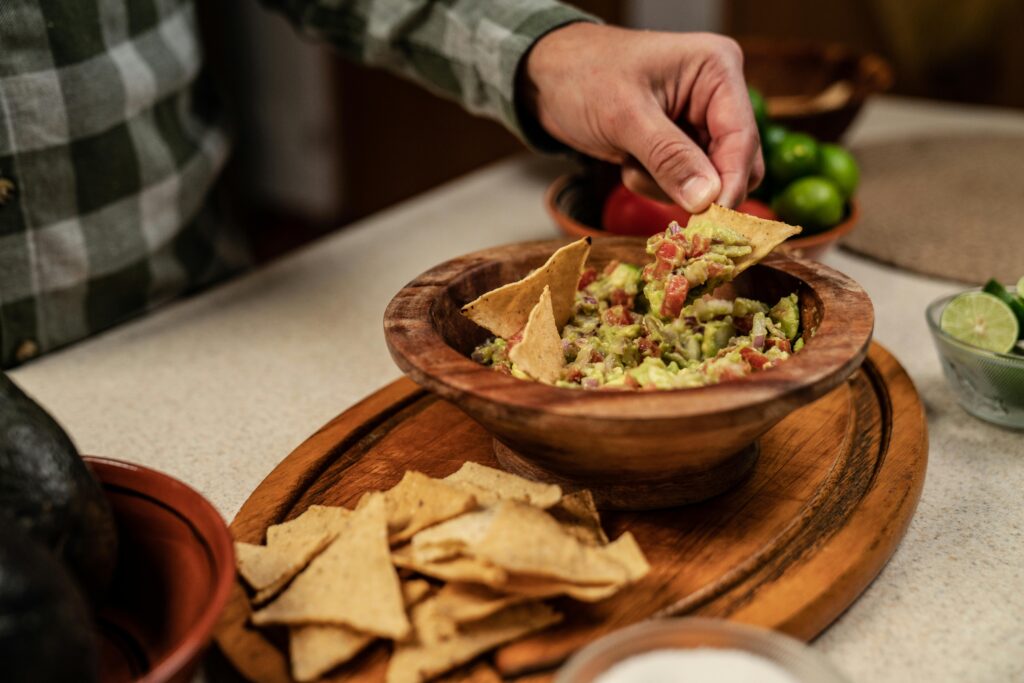
If you’ve ever tried to improve your diet, you’ve probably encountered advice that completely contradicts what you heard last week. One day, carbs are the enemy, the next, fat. Everyone seems to have an opinion—and not all of them are helpful.
Here are 10 nutrition myths that need to go:
- Carbs make you fat
- You need to cut out all sugar
- Eating fat makes you fat
- You have to eat clean 100% of the time
- Snacking is bad
- Detoxes and cleanses help you lose weight
- Late-night eating causes weight gain
- You have to track every calorie to be healthy
- Protein is only for bodybuilders
- Low-calorie means “healthy”
Some of the most common “rules” people follow are actually myths at best or designed to make you spend money you don’t need to at worst. These myths could be holding you back more than helping. Whether you’re trying to lose weight, gain energy, or feel better day to day, believing the wrong things about nutrition can sabotage your progress.
10 Nutrition Myths that Need to Die
There are more than 10 health and fitness myths floating around today, but I’d have to write a book to tackle them all.
Carbs Make You Fat
This myth has been around forever, but it’s simply not true. Carbs are your body’s main energy source. What really leads to weight gain isn’t carbs themselves—it’s eating too many calories overall on a daily basis.
You Need to Cut Out All Sugar
Yes, most of us could benefit from cutting back on added sugars—it’s easy to overconsume. But cutting out all sugar, including natural sugars found in fruit or dairy? Totally unnecessary. The key is moderation. A banana isn’t the problem. The sugary coffee, soda, and dessert overload are worth considering, though.
Eating Fat Makes You Fat
This one’s rooted in outdated science. Dietary fat got a bad rap in the ’90s, but now we know better. Healthy fats are essential for brain health, hormone production, and even weight management.
Avocados, olive oil, nuts, and seeds can all support your goals. The fats to limit are saturated and trans. Don’t fear fat—choose the right kinds.

You Have to Eat Clean 100% of the Time
Trying to be perfect with your food all the time is a fast track to burnout and an eating disorder. Yes, nutrient-dense foods should make up the bulk of your diet. But allowing room for flexibility is just as crucial for sustainability. As long as 70% to 80% of your diet comes from nutrient-dense, whole food sources, you’re miles ahead of the general population!
You don’t have to earn your meals or start over every Monday. Build a balanced approach you can actually stick to, not one that leaves you feeling guilty every time you eat a cookie.
Snacking Is Bad
Snacking gets a bad name, but it really depends on how and what you’re snacking on. Strategic snacking can actually support your energy and blood sugar levels and prevent overeating later.
The key is to choose snacks that balance protein, healthy fats, and fibre. Greek yogurt with berries, a handful of almonds, or hummus with veggies are all excellent options. Mindless snacking from the chip bag… that’s a different story.
Detoxes & Cleanses Help You Lose Weight
Spoiler alert: your body already has a detox system. It’s called your liver and kidneys.
Juice cleanses, teas, and detox kits may temporarily give a feeling of “cleaning out,” but they’re not a long-term solution and often lead to muscle loss, rebound weight gain, and nutrient deficiencies. Instead, focus on hydration, fibre, sleep, and movement. That’s the real detox.
Late-Night Eating Causes Weight Gain
Eating at night doesn’t magically make you gain weight. What matters most is your total calorie intake and food quality—not the clock.
Late-night eating can become a problem if it turns into mindless snacking or emotional eating. A light, balanced snack is fine if you’re truly hungry at night. Just be honest with yourself about whether you’re feeding hunger or boredom.
You Have to Track Every Calorie to Be Healthy
Calorie tracking can be helpful for awareness, especially at the beginning of a health journey. But obsessively logging every bite isn’t necessary for most people—and can actually become counterproductive.
Long-term success comes from building habits, not forever relying on apps. Learn portion sizes, build balanced meals, and check in with your hunger and fullness cues. It’s a lot less stressful.
Protein Is Only for Bodybuilders
Protein isn’t just for people trying to bulk up. It affects metabolism, muscle repair, immune function, and satiety.
Protein is your best friend if you’re looking to maintain muscle, manage your weight, or just feel fuller longer. Aim to include a protein source with every meal, whether that’s eggs, chicken, tofu, beans, or protein powder.
Low-Calorie Means “Healthy”
One of the most damaging myths I see is the association between “healthy” and the number of calories in any given food. Low-calorie doesn’t always mean better! In fact, many low-cal foods are stripped of nutrients and won’t keep you full.
Chasing low-calorie everything can leave you hungry, cranky, and reaching for snacks an hour later. Instead, focus on nutrient density—foods that give you vitamins, minerals, fibre, and protein. Sometimes, the higher-calorie option is healthier, more satisfying, and will help you reach your goals more easily.
Clearing Up the Confusion on Nutrition Myths
You don’t need a perfect diet to make progress—just a clear understanding of what actually works. These nutrition myths have been floating around for years, and getting caught up in them is easy. But now you know better.
So the next time you hear someone say carbs are bad or that you need to detox to feel healthy, you’ll know it’s just noise. And if you’re ready to cut through the confusion and build habits that actually work, let’s chat. Reach out today, and let’s start on a plan that supports your goals—without the BS.
Let me know in the comments below what other myths you would add to this list.